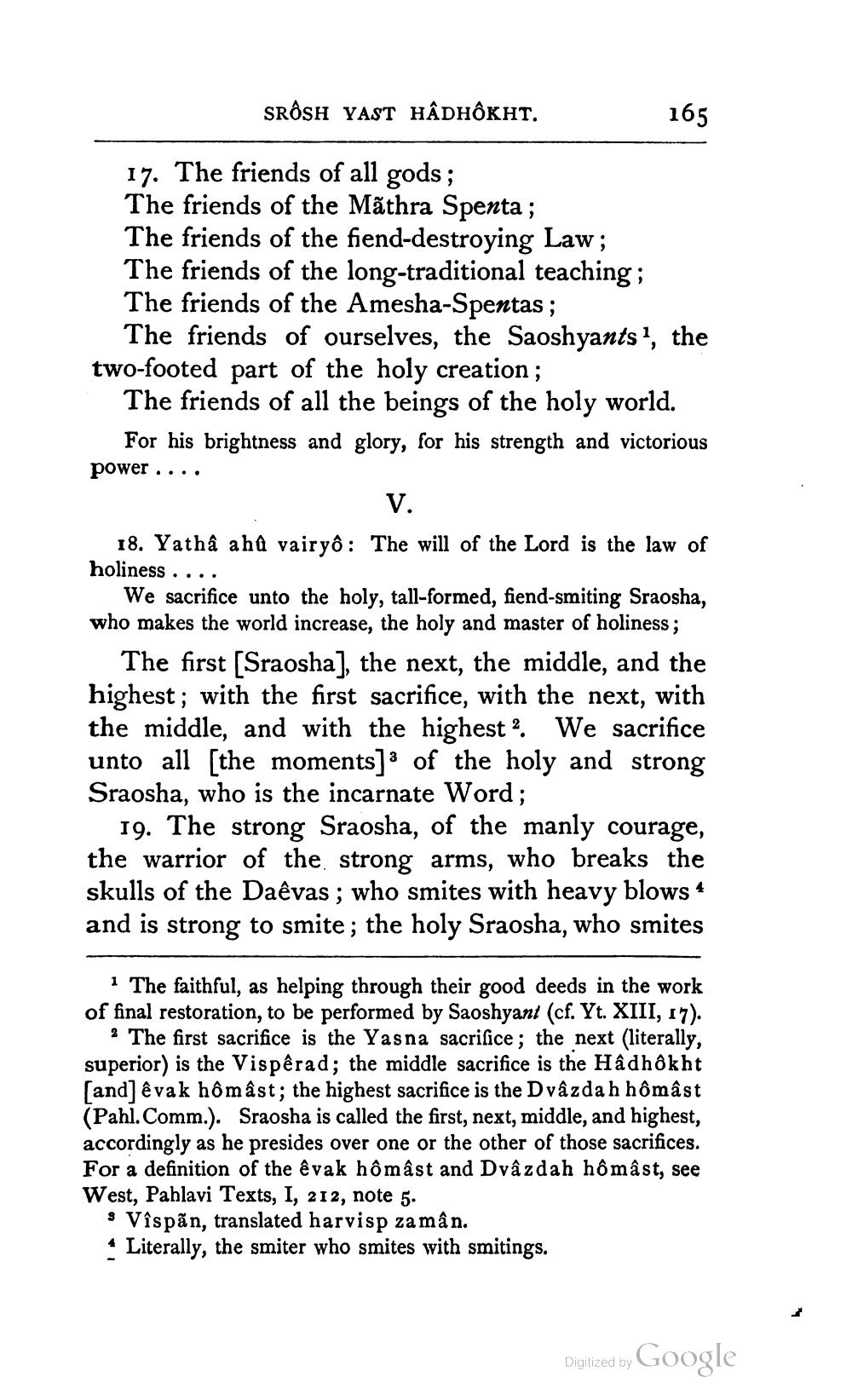________________
SRÔSH VAST HÂDHÔKHT.
165
17. The friends of all gods; The friends of the Mãthra Spenta; The friends of the fiend-destroying Law; The friends of the long-traditional teaching ; The friends of the Amesha-Spentas;
The friends of ourselves, the Saoshyants, the two-footed part of the holy creation;
The friends of all the beings of the holy world.
For his brightness and glory, for his strength and victorious power ....
18. Yath â ahû vairyô: The will of the Lord is the law of holiness....
We sacrifice unto the holy, tall-formed, fiend-smiting Sraosha, who makes the world increase, the holy and master of holiness;
The first (Sraosha], the next, the middle, and the highest; with the first sacrifice, with the next, with the middle, and with the highest ? We sacrifice unto all [the moments]: of the holy and strong Sraosha, who is the incarnate Word;
19. The strong Sraosha, of the manly courage, the warrior of the strong arms, who breaks the skulls of the Daêvas; who smites with heavy blows 4 and is strong to smite; the holy Sraosha, who smites
The faithful, as helping through their good deeds in the work of final restoration, to be performed by Saoshyant (cf. Yt. XIII, 17).
The first sacrifice is the Yasna sacrifice; the next (literally, superior) is the Vispêrad; the middle sacrifice is the Hâdhôkht [and] êvak hômâst; the highest sacrifice is the Dvâzda h hômâst (Pahl.Comm.). Sraosha is called the first, next, middle, and highest, accordingly as he presides over one or the other of those sacrifices. For a definition of the êvak hômâst and Dvâzdah hômâst, see West, Pahlavi Texts, I, 212, note 5.
S Vîspãn, translated harvisp zamân. * Literally, the smiter who smites with smitings.
Digitized by Google




